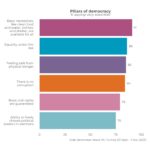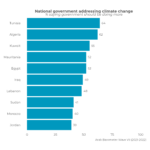Egypt’s recent security and macro-economic stabilization has been built on weak foundations and Covid-19 has further exposed this fragility. Egypt is now back to a situation broadly similar to that before the 2011 revolution: stable on the surface, but with deep structural problems and simmering social grievances, and little buffers to mitigate them. This paper argues for a major shift in the ways the country is currently governed in favour of greater openness in politics and markets, and for the international community to seriously engage Egypt on the need to reform economically and politically.
Introduction*
President Sisi has managed a successful security and macro-economic stabilization, but it has been built on weak foundations. Economically, he has relied on the military and the public sector to become the engines of growth and has been unable, or unwilling, to elicit a private sector supply response. His reforms have also come at a great social cost with poverty and precarious employment increasing.
The external shock due to Covid-19 has now hit all the sources of foreign exchange (FX) in Egypt: tourism, remittances, Foreign Direct Investment (FDI), gas export, and international capital flows. On economic and social grounds, Egypt’s stability now appears brittle – resilient on the surface but fragile underneath. Can the current governance and economic model evolve to sustain stability in Egypt following the current Covid-19 crisis?
We argue below that while Egypt’s financial prospects had improved after its successful 2016 stabilization, led by the IMF, it was insufficient to deal with the long term fundamental problems confronting the economy, and like previous stabilization efforts, have only provided Egypt with a window of a few years to implement deeper reforms. Post-Covid-19, this window has become much tighter. The economy is now at a serious risk of unravelling in the medium term if the key fundamentals – the economy, social conditions, and politics – do not improve. Accumulating foreign debt to push the problems away will only compound existing imbalances to the point of becoming insurmountable in the future…
Read full article at Arab Reform Initiative

